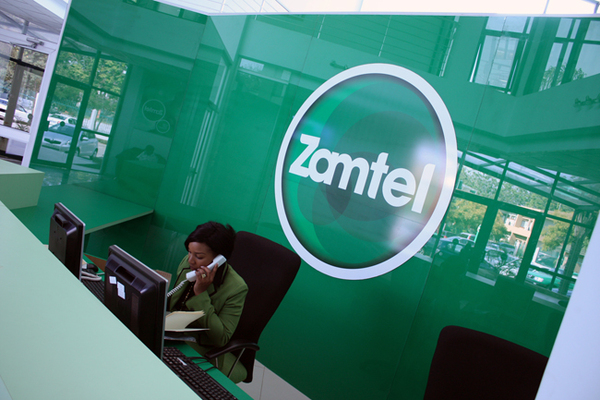LAP GreenN’s fall from grace was utterly avoidable

The telecoms provider LAP GreenN’s fall from grace has been nothing short of spectacular.
Established in 2007 with a total investment capital of over US$1 billion, LAP GreenN is wholly owned by the Libya Africa Investment Portfolio (LAIP), the African investment arm of the Libyan Investment Authority (LIA).
With coverage spanning from Sierra Leone to South Sudan, its expansion across the continent seemed inevitable, and the company was set to become the darling of the African telecoms industry.
But by the end of 2014, LAP GreenN only had a few million dollars left to its name. A year later, its debts had spiralled to US$425 million.
What are the reasons behind this sharp reversal in fortunes? A recent piece in Libya Al Mostakbal offered some timely insights into the company’s collapse, and our report below has been compiled with information from several sources within both the LIA and LAP GreenN.

In short, LAP GreenN was the engineer of its own downfall. Key factors contributing to its demise included a poor hiring strategy, incompetent internal management and high-profile disputes with partners, the most notable of which was the nationalisation of Zamtel (75% owned by LAP GreenN) by the Zambian government in 2012.
However, the real tragedy of the LAP GreenN’s decline is that it could so easily have been prevented, if the company had only heeded advice of the Libyan Investment Authority (LIA).
The LIA’s repeated efforts to save LAP GreenN
The LIA in Tripoli has gone to huge lengths in its attempts to save LAP GreenN over the last five years.

This began in 2012 when the LIA’s then-Chairman, Mohsen Derregia, offered staged funding to LAP GreenN in exchange for meaningful reforms. But of the US$208 million of assets – including US$133 million of cash – provided to LAIP (under its General Manager Ahmed Kashadah) and LAP GreenN (under its General Manager Wafic Shater), US$90 million is still unaccounted for.
This kind of mismanagement on the part of the LAP GreenN’s leadership has been a recurring theme, and a major obstacle to progress. It was again in evidence two years later, at a time when the LIA’s Chairman AbdulMagid Breish had commissioned respected international consultancies Oliver Wyman and Deloitte to analyse and review LAP GreenN’s business plan and financial model.
Both the plan and the model were found to be severely deficient. Showing a strategic clarity and business discipline wholly lacking within LAP GreenN, the LIA board refused to provide the company with a US$400 million loan that it clearly wouldn’t be able to repay, and instead equipped the company with a new strategy.
Under this strategy, LAP GreenN would undergo a wholesale restructuring. It would slim down its operations by closing its Dubai office, and focus on the key markets of Uganda and the Sudan. The ultimate objective: to bring LAP GreenN’s rampant expenditure under control and make the company profitable once more. A sensible plan, and one which illustrates the pragmatism that the LIA has shown in recent months – particularly with its recent call for its assets to remain frozen until a new unity government is in place.
This plan could have been a turning point for LAP GreenN. But instead, LAP GreenN decided to completely ignore it. Ahmed Kashadah and Ali Hibri, Chairman of LAIP in Tripoli, refused to carry out the LIA board’s instructions. Furthermore Wafic Shater refused access to the LIA’s forensic auditors. These auditors had been instructed by the LIA to investigate LAP GreenN’s annual expenses, which were running between US$17-25 million. And this was for an office with no more than ten employees!
So what was the result of LAP GreenN’s defiance of the LIA’s instructions? An estimated US$1.5 billion worth of funds ploughed into the company, with very little to show for it.
The LIA continued steadfastly in its efforts to save the company. It also continued its wider examination of over 550 companies forming part of its investment portfolio, categorising these companies into two buckets – one for immediate liquidation and the other for a managed exit and sale. However all these efforts had to be put on hold when the country was struck by civil war and split into two governments based in Tripoli and Tobruk.
LAP GreenN’s ill-fated restructuring
The most recent setback for LAP GreenN came last August. A breakaway group based in Malta and fraudulently claiming to represent the Libyan Post, Telecommunication and Information Technology Company (LPTIC) announced a “strategic consolidation” which included the supposed acquisition of LAP GreenN by LPTIC.
The effect of this acquisition was disastrous for LAP GreenN. Rather than address its underlying problems, the acquisition served simply as a means of transferring the LAP GreenN’s debts and liabilities to a new company.
Worse, it also obscured the identity of those within LAIP and LAP GreenN who might have been responsible for corrupt activities within the organisation, making it more difficult to bring them to justice.
The future for LAP GreenN
It is vitally important to shine a spotlight on the reasons behind LAP GreenN’s downfall, so that important lessons can be learned and those responsible for corrupt activities within the organisation brought to justice.
What is even more important, however, is getting the organisation back on its feet, and recouping the Libyan people’s investment. This will only happen if LAP GreenN heeds the advice of the LIA and signs up to its strategy for a disciplined, well-managed – and prosperous – future.
The views expressed in this article are the author’s own and do not necessarily reflect Libyan News’s editorial policy.
How to submit an Op-Ed: Libyan Express accepts opinion articles on a wide range of topics. Submissions may be sent to oped@libyanexpress.com. Please include ‘Op-Ed’ in the subject line.
- Libya’s HCS invites applicants for key state roles - December 31, 2023
- UK calls on Iran to prevent escalation in Israel-Hamas conflict - November 05, 2023
- Libyan Interior Minister: Immigrant shelter costs a fortune - November 05, 2023


